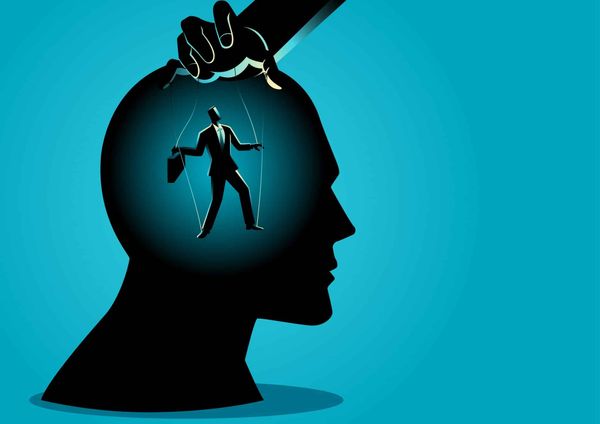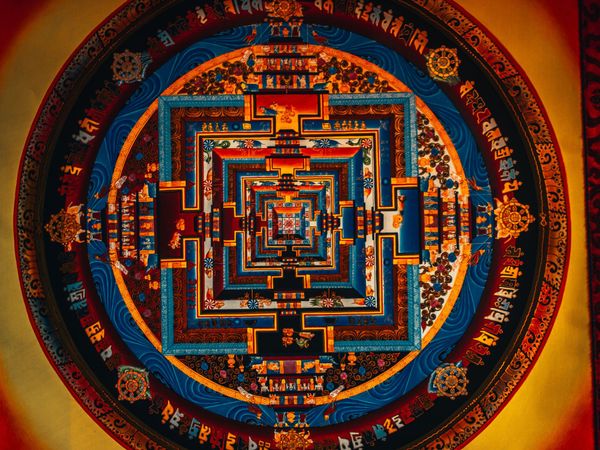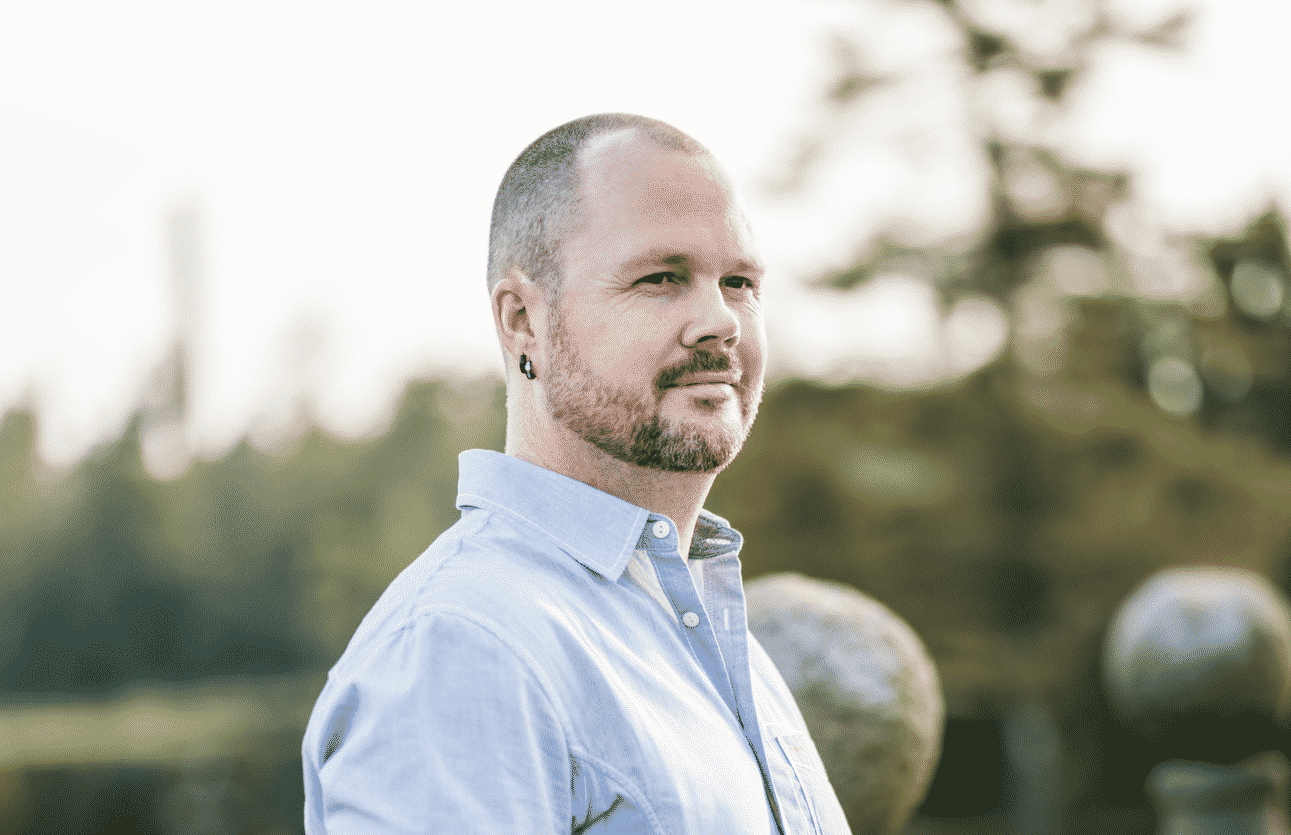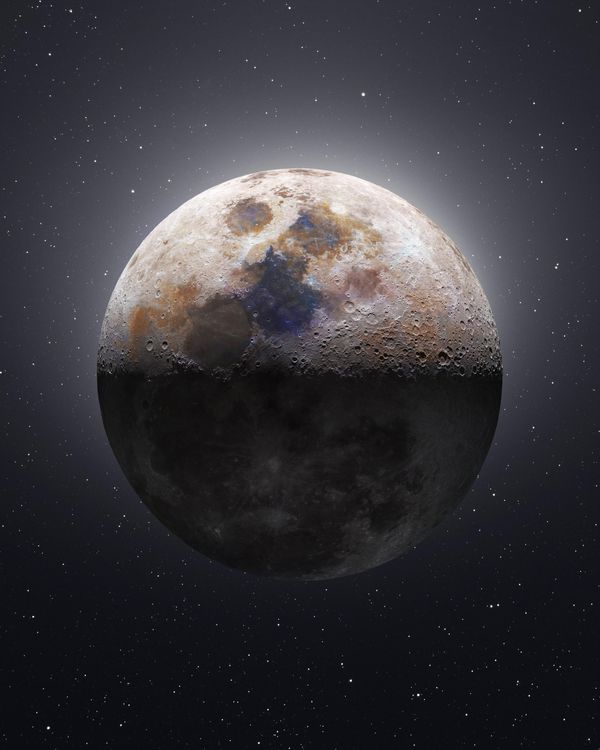Jordan Bates • • 24 min read
50 Life Secrets and Tips Pt. 3

This list is a compilation of the most useful, life-changing, and/or vitalizing concepts and insights I’ve had or come across over the years. Take from it whatever you find illuminating or meaningful, and disregard the rest.
“We don’t know enough to worry.”
Wei Boyang, a great Chinese Taoist, once said, “Worry is preposterous; we don’t know enough to worry.” This quotation was a favorite saying of the late Terence McKenna and has also proven revelatory for me. To worry implies that something “bad” might happen. But, as fragile, relatively naive human beings, who are we to say what would truly be “bad” vs “good”? Things that seem “bad,” including death, might end up being “good,” and vice versa. We cannot be certain. Thus, to worry is to exasperate the mind with value judgments that are based on a very limited human perspective. Therefore, worrying is largely a waste of time. One of my favorite Zen stories illustrates this point nicely.
Advertisements are designed to make you feel bad about yourself.
David Foster Wallace said it most succinctly: “It did what all ads are supposed to do: create an anxiety relievable by purchase.” Advertisements exist for the sole purpose of increasing profits. They function by making ad-viewers feel deficient about some aspect of their lives while simultaneously promising a solution. For just $19.95! That’s not to say that advertisements are always malevolent, but if you don’t maintain a hyper-critical awareness of advertiser intentions, you might find yourself among the millions who have unknowingly allowed tricky marketers to make them feel fat, lame, ugly, and/or unhip. You can read more about this topic in this essay or in this comic depicting the artist Banksy’s perspective on advertisements.
Relocating reveals you to yourself.
When wrenched from the familiar, stripped of all connections, and plopped into a new environment, all pressures to be who one once was are suddenly absent. The slate is clean, and one has space to really consider how to spend one’s time. In this situation, the excess seems naturally to fall away, like a gaudy snakeskin, revealing what is most important and joyful for the individual, for you. This is one of the greatest reasons to travel at some point in your life.
Practice conscious breathing.
Follow your breath until you desire nothing beyond this moment, and suddenly everything will belong to you. That might sound idealistic, but it’s a real thing. Practicing focusing only on your breath — learning to let your breath be your anchor — can lead you to moments of exultation at the sheer awesomeness of existence. It can also help you to manage anxiety, depression, intrusive thoughts, and more. If you’re interested, here’s a comprehensive guide to conscious breathing.
Learn about spiritual bypassing.
“Spiritual bypassing” is a term in psychology for the shadow side of spirituality. Learning about this concept changed the way I saw myself and helped me to become aware of behaviors that were hurting myself and my relationships. I highly recommend reading this article, which explains much better than I can here. Here’s a great excerpt:
“Spiritual bypassing is a very persistent shadow of spirituality, manifesting in many forms, often without being acknowledged as such. Aspects of spiritual bypassing include exaggerated detachment, emotional numbing and repression, overemphasis on the positive, anger-phobia, blind or overly tolerant compassion, weak or too porous boundaries, lopsided development (cognitive intelligence often being far ahead of emotional and moral intelligence), debilitating judgment about one’s negativity or shadow side, devaluation of the personal relative to the spiritual, and delusions of having arrived at a higher level of being.”
“Culture is not your friend.”
This was another favorite saying of the late Terence McKenna, one he devised himself. McKenna’s point was that cultures can be thought of as human operating systems that inevitably contain many bugs, defects, and blind spots. Though culture helps us in many ways, it also conditions us to live and think according to the accepted norms of our time and society, vastly limiting our possibilities. For a person with a truly open mind and “free soul,” culture becomes a kind of cage that must be transcended, as it is ultimately a set of restrictions that prevent one from thinking, living, and creating in the freest way possible.
Follow your bliss(ters).
Most of us are familiar with Joseph Campbell’s famous call to arms: “Follow your bliss!,” which roughly means, “do what you love.” Fewer people are aware that once, when criticized by students who said that “follow your bliss” encouraged pure hedonism, Campbell reportedly grumbled, “I should have said ‘follow your blisters,'” indicating that following one’s bliss will likely involve significant hardship and demand great effort. I also tend to think that we should follow our bliss, but follow it intelligently — i.e. that we should possess great self-understanding in order to most fully flow with our nature, our whole self, as opposed to acting on pure impulse under the guise of “following bliss.”
Play, laugh, enjoy, be silly.
“I like nonsense, it wakes up the brain cells,” Dr. Seuss once said. I tend to agree. Somewhere on the trudge from childhood to adulthood, most of us lose the ability to let go and be zany and silly and make animal noises and jump and dance spontaneously. Do whatever you can to keep this ability intact. Play and silliness are, for me, deeply nourishing and even a kind of therapy counteracting the vitality-sapping, soul-silencing effects of today’s Super Serious Societies.
Become an Übermensch.
In Thus Spoke Zarathustra, Friedrich Nietzsche described what would become one of his most memorable theories — that of the Übermensch. In essence, an Übermensch is a person who has overcome all external influences — tradition, norms, other people — to reach a liberated, child-like state of free play and creativity in which one wills one’s own values. If you’re curious for more on this, read Nietzsche’s guide to becoming Übermensch.
You are not a noun. You are a verb.
The late Buckminster Fuller wrote, “I live on Earth at present, and I don’t know what I am. I know that I am not a category. I am not a thing — a noun. I seem to be a verb, an evolutionary process — an integral function of the universe.” Fuller’s idea was that we are not static objects, but rather, ever-unfolding processes. Whether we wish it or not, existence is always interfacing with and altering us, as we are it. Physical, mental, emotional, and spiritual changes are endless — change is the only constant. Among other things, this realization has compelled me to feel that we must embrace change and transformation — our particular process of becoming — recognizing that destinations are illusions. If this is intriguing, you might appreciate this in-depth essay on the topic.
Death is not to be dreaded.
Nietzsche wrote that, “The certain prospect of death could sweeten every life with a precious and fragrant drop of levity; and now you strange apothecary souls have turned it into an ill-tasting drop of poison that makes the whole of life repulsive.” In other words, death should be a reason to enjoy life, to take nothing too seriously, but instead we treat it as a horrible phantom. Death is as much a part of the process of life as breathing or eating. We will all die someday, and that is okay. To reflect further on this, I highly recommend the poem, ‘Death is Nothing At All,’ by Henry Scott Holland.
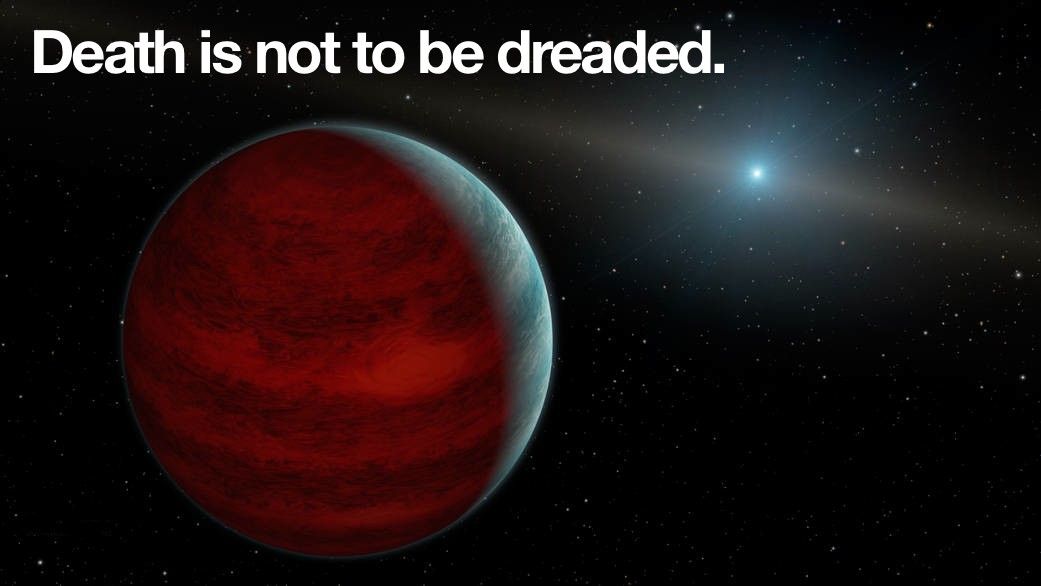
Amor fati.
This was another major idea of Nietzsche’s. Translating roughly to “the love of one’s fate,” amor fati is the idea that we should embrace and appreciate every single event and experience of our lives, recognizing that each is an integral thread in the tapestry of our becoming, our identity. One who loves his fate sees that every detail of life is necessary for life to be just as it is at any given moment. To abide amor fati is to possess a kind of trust that “life is in the right, always,” as Rilke put it. It is to affirm life in the fullest, to revel in one’s path, whatever that path may be.
Listen to your deep-down intuition.
Many throughout history have argued that there is a kind of “voice” deep within us that already knows what we need to do. This might sound a bit ‘woo woo,’ but in my experience, it’s true. Call it your “heart” or “soul” or whatever — there is a part of you that somehow just knows what you need, who you are, and when you are in-sync with your core self. For me, there is a feeling of rightness and purpose that lets me know when I’m really “doing my thing,” accompanied by a distinct dread/displeasure when I am doing something that I am not intrinsically motivated to do. When the latter occurs, I sense the dissonance and know that I need to do things differently.
The world of techno-connection can be dangerous.
Maybe this one is obvious, but I think it’s worth mentioning. Excessive investment in techno-connection — social media, digital entertainment, etc. — can have various detrimental effects. You may find that your ability to mindfully participate in the world around you slowly erodes. You may realize that techno-connection has become a replacement for real, in-person relationships and communities. It’s worth thinking critically about your habits and aiming to be mindful in technology usage.
Avoid “Us vs. Them” mentalities like the plague.
“Us vs Them” mentalities might be the single greatest source of hatefulness, violence, and war in human history (i.e. things that suck for everyone). We evolved to form groups, but when we over-identify with our ingroups to the point of developing group narcissism, we tend also to begin directing animosity and hostility toward outgroups. We begin to see the world as a collection of groups that are necessarily in conflict with one another. We create a world of good guys and enemies, and in this separation we sow the seeds of aggression and violence. For this reason, I try to identify first and foremost with the greater community of sentient beings in the universe and to envision and enact a world in which many groups can coexist, cooperate, and co-create a beautiful, peaceful human enterprise.
Read Sacred Economics.
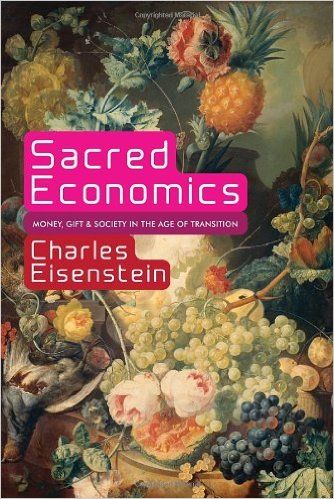
In Sacred Economics, Charles Eisenstein provides the most moving and poignant account I’ve seen of the various deficiencies and conditions of modern life that lead to widespread alienation and despair in the general populace. He suggests that our condition cannot be remedied unless we re-imagine the most basic cultural mythologies that underlie our present global systems. Eisenstein imagines what a new mythology of the “connected self” might look like and goes on to detail how we might reform our economic system to reflect this mythology — i.e. how we might create an economic system that encourages equitability, generosity, and sustainability. The book is a veritable shotgun blast of insight into our modern condition that I feel would benefit any open mind. It’s also, FYI, one of Jordan Lejuwaan’s — the creator of HighExistence — favorite books.
You don’t have to work as much as you think.
At least in the United States, there is an unquestioned cultural assumption that we have a duty to spend a good chunk of our lives busting our glutei maximi doing difficult tasks that we don’t find stimulating or enjoyable. This is untrue. For one, if you live a minimalist lifestyle, you can get by working far less than those who work in order to afford mountains of material possessions. Furthermore, work can be play, if you’re working on something you deeply care about. If you want it badly enough and adopt an uncompromising attitude, you can work far less than your peers and transform the work you do into meaningful play.
Engaging with the world is an antidote to depression/solipsism.
I just told you that work is mostly unnecessary, but now I’m going to tell you that engaging with the world in one way or another is a really good idea. Because there’s something odd that can happen when one stops working or doing much of anything for a while. One can begin to feel like a bystander to the rest of humanity, as if one could just chill off to the side and watch the world careen onward, an asteroid hurtling through blackness. One can begin to feel alienated, superfluous, depressed. The antidote for this, as I wrote in an essay on jobless nomadism, is to maintain engagement with projects, people, and communities.
Do things for their own sake.
Try, to the greatest extent possible, to do things for no reason other than the enjoyment of the activity itself. For the intrinsically rewarding nature of whatever it is you love doing (unless you enjoy serial killing). If you do things solely for external reasons — to accumulate wealth, to impress others, etc. — you are much less likely to actually enjoy what you are doing. And, what’s the point of living if you aren’t enjoying yourself? For me, activities seem to be intrinsically rewarding when they are in-tune with my core self and values, so finding such activities can be a useful exercise in coming to understand your peculiar identity.
Be vulnerable.
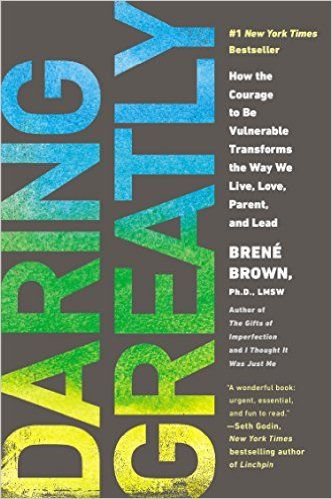
Open yourself up to the world. Let other people in. Don’t be afraid to share who you are and how you feel. Brené Brown is an American scholar and author who has done some fascinating research in the area of vulnerability. Her findings suggest that the ability to be vulnerable is correlated with human thriving and well-being in a number of areas, including work, relationships, and parenting. I highly recommend her TEDTalk on the subject, as well as her marvelous book, Daring Greatly: How the Courage to Be Vulnerable Transforms the Way We Live, Love, Parent, and Lead.
Conduct thought experiments to see the world anew.
Imagine that you are an extraterrestrial visiting Earth for the first time, and try to view everything around you through that lens. Imagine the objects around you as 1000x bigger then 1000x smaller than they are currently. Pretend you are an infant, aiming to let go of all ideas and language and concepts and even your notion of self. Exercises such as these prompt us to learn about the world in a novel and interesting way, to play with reality, and to realize deeply that “subjectivity is truth,” as Kierkegaard wrote.
Let compassion guide you.
“Compassion is the basis of morality,” Arthur Schopenhauer famously wrote. We humans have erected elaborate systems for establishing and enforcing ethics, obscuring the fact that doing the “right” thing is usually as simple as recognizing that other sentient beings suffer just like you do and doing whatever you can not to contribute to unnecessary suffering. This basic compassion is immensely powerful and is one of my most valuable compasses in making micro, everyday decisions and larger decisions about how to respond to and interact with the world around you. Compassion is also essential in self-evaluation: the ability to recognize that you are a fallible human and to forgive yourself for past transgressions is indispensable to flourishing.
Avoid binary thinking.
An immense source of conflict in the world today are people who insist on seeing things as this or that, black or white, right or wrong, good or evil. Countless people endlessly reduce complex issues in search of a neat-and-tidy answer that will allow them to be comfortably certain. The problem is that very few matters are so simple, so people end up failing to really dig in and understand issues, opting instead to take an absolute stance. The quintessential example of this is the way in which people divide over political issues along party lines, acting as if there is a definite “right” answer when often there is not. Transcend binary thinking by viewing any issue from multiple perspectives and surrendering the need for absolutes.

Be part of something larger than yourself.
Part of what has nourished the soul of mankind for aeons is the feeling that we are part of some bigger picture — that our individual lives are more than a series of isolated actions between birth and death. Most cultural signals urge us to emphasize our individual minds, wants, and needs over all else, and because of this, many people feel alienated and purposeless. It’s okay to appreciate your individuality, but you will find strength and meaning in identifying with some larger community, vision, movement, or force. So, join HighExistence, or start volunteering for a cause you believe in, or recognize that you are inseparable from and integral to the cosmos itself.
Embrace uncertainty.
From a young age, most of us are surrounded by those who project an image of certainty. Our parents know what’s best for us. Religions know the truth of God. Governments know how to take care of our country. Newscasters know what is going on in the world. Scientists know the nature of the universe. The giant secret that no one ever mentions is that none of these entities actually know anything for certain. Even the smartest human beings are akin to blind children groping around in a dark room for some semblance of understanding. Thus, the best thing you can do is learn to “live the questions,” as Rilke wrote — to dance with uncertainty and learn to love the mystery. Experience the mystery to the fullest, but feel no need to solve it.
See the mystery of existence everywhere.
Related to the previous tip: recognize that everything you see, hear, touch, taste, and experience is an inextricable part of the mysterious unfurling of being itself. Every seemingly individual entity in your world is enmeshed within an immense and seemingly eternal process of reality that we humans can never fully fathom. You are unable to explain the existence of literally every object around you — toaster, dog, rock, etc. — because a full explanation would require that you explain the entire process of the universe and all of the ways that a given object is connected to every other object in the universe. A quip of Carl Sagan’s seems relevant here: “If you wish to make an apple pie from scratch, you must first invent the universe.” Absorb deeply this fact, and you will find daily awe at the vibrant, unknowable reality that’s all around you.
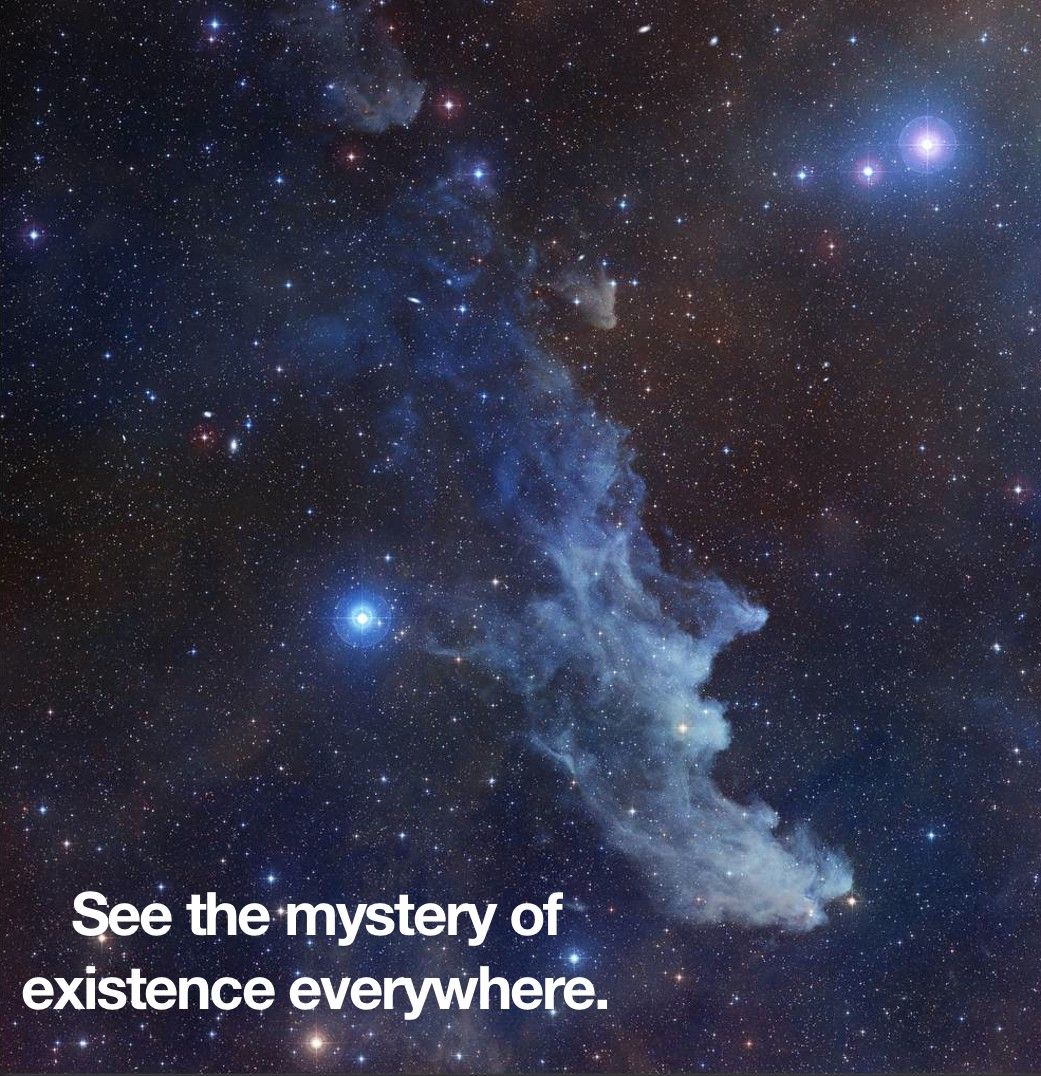
Explore, adventure.
Some have argued that one of the crucial elements of a full and vital human life that is lacking in the modern world is true space for adventure and risk-taking. Our lives have become so bubble-wrapped and cookie-cutter and confined to conventional and comfortable modes of living that many people rarely venture into anything new. Yet, to encounter beautiful novelty, to feel surges of adrenaline, to do what you did not know you could do, is to fulfill what seems to be a deep longing within human beings — a longing to explore, to push beyond the known into the realm of the unknown.
Let exercise become a natural part of your life.
“No man has the right to be an amateur in the matter of physical training. It is a shame for a man to grow old without seeing the beauty and strength of which his body is capable.”
― Socrates
Exercise, like most things, probably isn’t going to work for you if you try to force it. I think many people make this mistake: they create a false dichotomy in which Life With Exercise looks strikingly different from Life Without Exercise, the former involving gym memberships, discipline, strenuousness, and other hard-sounding things. But, really, we all exercise in some capacity every day. Movement is exercise. If you simply increase the amount of movement you do each day, you’re exercising more. So, to create a lifestyle of exercise, simply begin to gradually walk, dance, stretch, play games, do yoga, and jump more in your day-to-day life. This alone will make you much healthier.
To experience is enough.
Many people possess all kinds of criteria by which they measure their lives to try to determine whether their existence is worthwhile. Am I excited about things? Am I happy? Do I love my career? There’s nothing wrong with asking yourself these questions, but consider this: what if you discarded all criteria and chose to affirm life, no matter what? That is, what if you chose to see experience itself — the chance to see, taste, think, dream, love, suffer, all of it — as enough? Simply by waking up in the morning, you have another opportunity to experience an immense spectrum of wondrous things. Try to savor this jaunt through time and space, and even when circumstances are shitty, remember that you still have the rarest of gifts: life itself.
98% of people don’t want any trouble.
I think many of us fall prey to the fallacy of thinking that people of certain countries, cultures, or regions are inherently more hostile than others. Or that everyone from a particular country/culture/region is likely to support the violence perpetrated by other groups/individuals from that country/culture/region. In my country and in every country to which I’ve traveled, I have found the overwhelming majority of local people to be courteous and hospitable, or to harmlessly keep to themselves. Try to keep this in mind before stereotyping or making broad assumptions about any sizable segment of humanity.
Contentment, not happiness.
“The notion that a human being should be constantly happy is a uniquely modern, uniquely American, uniquely destructive idea.”
― Andrew Weil
Modern advertisements in particular have given millions of people a false ideal of happiness. People erroneously believe that happiness consists in being perma-perky, always cheerful, endlessly smiling, ever-excited. This state of being is a fiction. In an attempt to rid myself of this false notion of happiness, I have for a long time focused on the idea that a perpetual quiet contentment is a more attainable ideal to which to aspire. This contentment does not entail an end to negative mental states; rather, it entails a deep acceptance of the endless ebb and flow of mental states — a recognition that “this too shall pass.” This contentment is thus more of a perspective on one’s state than a state in itself — a perspective that allows one to face life with equanimity.
Stop trying to control everything.
This one is related to the previous point, but it’s worth elaborating on. Many people want reality to conform to their expectations. They want, through brute effort, to control their fate. This is an impossibility, as existence will forever find ways to defy expectation. Therefore, we are better off surrendering to the whims of existence. Resisting that which we cannot change is perhaps the greatest source of unnecessary suffering in humanity. Practicing deep acceptance of everything brings an inarticulable calm to one’s soul and allows one to direct one’s energy toward the things one can do and change. Accepting the world just as it is and wanting to change/contribute to the world are not mutually exclusive positions.
Use saunas.
This may be a personal preference, but I find a hot sauna to be special kind of hideaway, a Secret Chamber of Peace, cut off from the bustle and busyness of the world. I love the feeling of sweating profusely, as it feels like I’m releasing all of my impurities, stresses, and anxieties. I often vegetate in a sauna for 20-30 minutes after working out, using that time to meditate and read. I truly cherish this time, and I suspect many of you will too.
Read Brave New World.
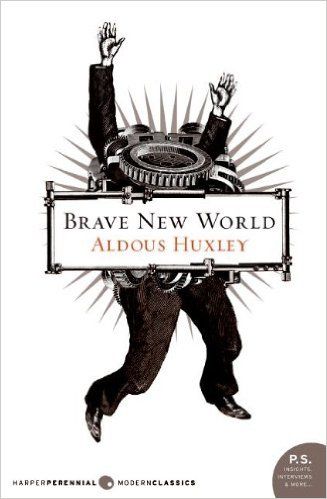
In Brave New World, Aldous Huxley painted a prophetic vision of a dystopia in which plentiful amusements and distractions have effectively sedated the general populace, rendering humans utterly passive and docile. The occupants of Huxley’s are vacantly and mindlessly “happy” hedonists, unaware of the fact that they are effectively slaves to a totalitarian state that has deceived them. In this novel, Huxley brilliantly anticipated many of the developments that would shape our own present-day societies. It is a haunting and epiphany-inducing reading experience that I recommend to everyone.
Consciously give thanks often.
“Gratitude, not understanding, is the secret to joy and equanimity.”
― Anne Lamott
Gratitude may well be the difference between people who see life as wonderfully full and people who see life as permanently deficient. It might sound trite, but there really are always people, circumstances, and things to be grateful for. Consciously noticing one’s blessings and expressing thanks (if only internally) is a decidedly powerful, transformative activity. When I take the time to do this, even in the midst of a depressive period, I always feel strengthened and fortunate. In sum, conscious gratitude is a soul-vitalizing superpower. Use it often.
“Become what you are.”
This was another favorite saying of Friedrich Nietzsche’s. I see it as the 19th-century equivalent to “do your thing.” The idea is pretty simple: accept all of the shades and colors of your being; embrace the people, places, and experiences that have constructed you; and become the complete and natural expression of all of the interconnected forces that constitute your you-ness. In practice, this is a formidable task, requiring deep self-understanding and a willingness to perpetually refine and grow oneself. The reward, though, is great — to be what only you can be, to the fullest extent.
Failure is only feedback.
Many of us are deathly afraid of failure — of attempting something and having it go poorly, of appearing foolish in front of our peers. Yet, really, “failure” is merely an integral aspect of any undertaking. Certain things will always go poorly, in anything you do, no matter who you are. To call these things “failures” and to blame an individual for them is to ignore the inevitability of hiccups. In fact, “failure” is essential feedback, allowing us to see what isn’t working and to refactor our thinking and our behavior in such a way so as to allow things to flow more smoothly. Go after “failure”, and view the fear of failure as an indicator of an area in which you have room to grow.
Aimlessness is a tactic for seeing the world anew.
In his autobiography, In My Own Way, Alan Watts wrote:
“When one goes to a city like this it is all very well to make plans to see the famous sights, but there should be plenty of time to follow one’s nose, for it is through aimless wandering that the best things are found.”
When one walks around aimlessly, with no destination in mind, one seems naturally to go slower and to soak in more fully the sensory experience. I would go as far as to say that there is an art of seeing — a mode of consciousness one enters to really perceive the small details that give any place on Earth its distinct suchness, its inimitable quality. When one is free of a destination, a journey becomes an endless stream of small, surprising destinations, as every dozen steps you take can reveal something unexpected. So, wander, even if that simply means taking aimless walks in your town or city.
Dance.
Let go. Let your body flail and fling and wring and spin and wave itself in fits of helpless submission to preferably LOUD music. Let the beat and the rhythm be your temporary spirit guides, moving and wrenching your body as an ecstatic puppeteer might. Abandon rationality and self-consciousness intermittently in favor of allowing existence to progress of its own accord along a beautiful, intuitive, spontaneous trajectory. You might find that if you do this often enough, you begin allowing other areas of your life to progress in this same way.
Always make time for family and friends.
We live in an age of infinite distractions. There are limitless excuses one might make for not keeping in touch with or spending time with the people that mean the most. This is precisely why you should make a point to keep in touch, to spend time, to share experiences. Without those we love — without dear people with whom to share this experience of life — can we truly be said to have anything?
Create and appreciate beauty every day.
Beauty can be created anywhere. A kind interaction is beautiful. Doodling casually is beautiful. A person taking the time to watch the clouds is beautiful. In the midst of a world with plenty of darkness, we would do well to take the time to notice the beauty around us and to contribute to it. Create beautiful things — rocking chairs, rap songs, websites, jokes, paintings, doesn’t matter. And aim to appreciate beauty in many art-forms. Read novels and poetry. Listen to many genres of music. Contemplate paintings from many schools. Notice graffiti and other street art. Art can become a kind of armor against existential despair and the changing tides of fortune. So next time you are captured by beauty, linger a bit longer before scurrying to your next to-do.
Learn to let go of intrusive and obsessive thoughts.
Are you the type of person that tends to go down rabbit holes of thought? Or who tends to have unusual thoughts and become obsessed with what a particularly graphic or strange thought “says” about “who you are”? Me too. I think a great many people — perhaps most everyone — deals with this. At some point you have to realize the exhausting circularity of endless analysis and introspection. You must deemphasize your thoughts, learning to see them more as sensations that are “passing through” — like birdsong or the sound of a rushing stream — rather than a direct expression of “who you are.” Thought-events simply occur in the mind and are often far less significant than we’re comfortable admitting. Gaining the ability to detach from one’s thoughts and to let go of unproductive thought-spirals is invaluable for psychological vitality. For me, the best way to detach is by blatantly distracting myself, creating something, engaging conversation, or focusing deliberately on my breathing.
Everything is always okay. Breathe, relax.
Trust that on the deepest level, things are okay. The universe has existed for billions of years. You and I have existed for mere moments by comparison. Maybe nature knows better than our young, limited minds. “No snowflake ever falls in the wrong place,” as the Zen proverb goes. If you’re not ready to accept this, hang on to the seed; it might blossom later. This is not a matter of intellectual certitude; it is a matter of something more ineffable, something that one either does or does not allow into one’s heart.
Remain open to all perspectives.
You will find that everyone has useful and/or nourishing morsels of understanding to offer you, if you are simply willing to listen. Never assume that someone has nothing to teach you, or that you are done learning. The path of learning is unending. Also remember that open-mindedness and skepticism go hand in hand. Be receptive to new ways of thinking, but know when to call bullshit, and be meticulously selective about what you incorporate into your worldview.
You are not a “bad” person.
You’ve made mistakes. So have I. So has everyone. And that’s okay. More than okay. Bursting with okay-ness. Because we were all always going to slip up. The deck was stacked against us. Being human entails foolish decisions and moments in which we act from the worst parts of ourselves. This is how we learn. Forgive yourself. Please. The only thing we can do is learn from our errors in order to be wiser in the future, to act from the better parts of ourselves in the moments we can still influence.
Life will always have downsides.
“There are ships sailing to many ports, but not a single one goes where life is not painful.”
― Fernando Pessoa
You cannot live without suffering. Sail to the ends of the Earth, and it will catch up with you. Regardless of where you go or what you do, you cannot escape yourself and your particular mental baggage. And that’s okay. The contrast between “good” and “bad” experiences in life lend poignancy to each respective pole. And it is often the struggles of life wherein the most profound transformations take place, wherein resiliency, character, and compassion are enhanced.
Find your own truth.
“I must find a truth that is true for me,” Kierkegaard wrote. He is also remembered (as I mentioned earlier) for declaring that “subjectivity is truth” and “truth is subjectivity.” Kierkegaard’s insight was that even supposedly “objective” matters must always be interpreted by a subjective human mind, before being integrated into that particular subject’s uniquely complex worldview, web of understanding, schema of prioritization and organization. The point is that every person’s web, every person’s worldview — even if two people were exposed to all of the same information for their entire lives — will differ from everyone else’s. We each approximate our own truth from the data we encounter. So, remember that what you are looking for is your truth, not the truth. Who needs the latter anyway? After all, your truth, your own understanding, is the only truth that can ever be of use to you.
Make the Internet a cool place.
The Internet can be an impersonal, hostile space, or it can be a space in which to practice reflective, compassionate discourse. The Internet can be a cloistered re-hashing of banal subjects, or it can be a wildly free celebration of open-mindedness and imagination. You choose.
Fall in love.
The greatest joys (and greatest sorrows) I’ve known as a human being have resulted from falling in love. Despite the anguish of heartbreak, I would never take back any of it back. To love a partner unconditionally and to have that love reciprocated, to form a profound bond and a complete trust — this has been the most sacred gift of my human experience.
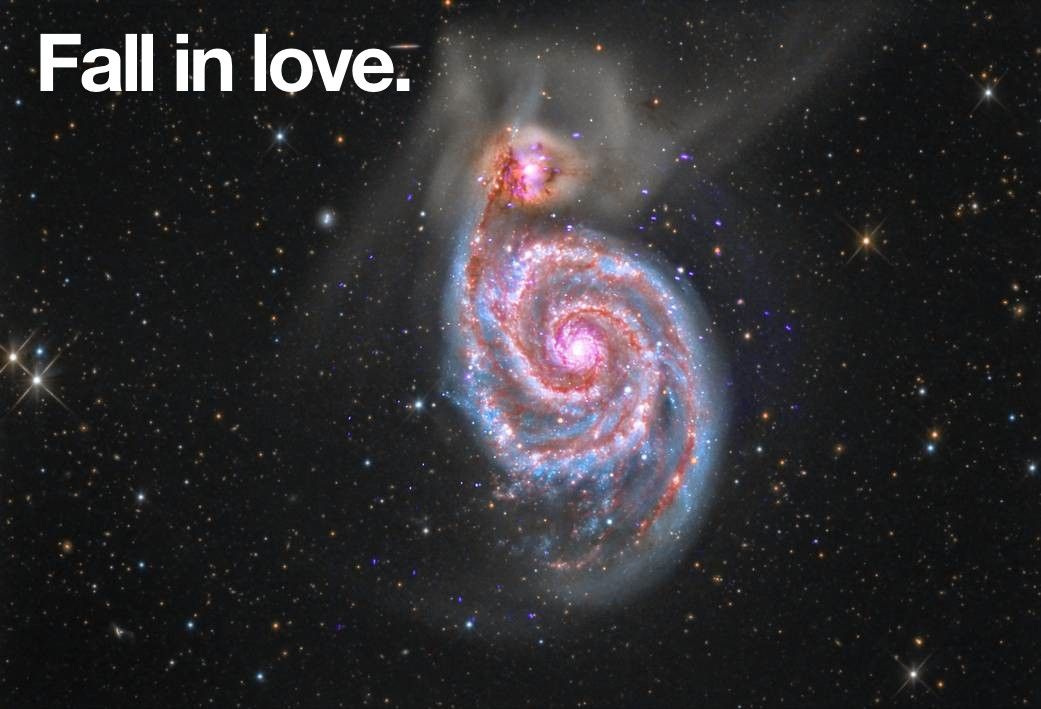
We are all “cut from the same cloth.”
We are all ephemeral snowflakes flittering about in the same fathomless blizzard — fragile sentient beings groping about in a strange universe, searching for love and meaning and all that other good stuff. We face the same predicament/opportunity. On one hand, it’s really difficult and scary and overwhelming for all of us. On the other hand, we all have the chance to sing and eat deliciousness and gaze at the stars and cool stuff like that. We’re in this together, for better or worse, is what I’m saying. And it’s already hard, so let’s not make it harder for each other. Let’s be kind. Let’s try to create a world in which everyone’s basic needs are met. It is my deep suspicion that what is not good for everyone, and the planet, is eventually good for no one. If there’s one thing you take away from this article, let it be this: one community of sentient beings. One love.
BONUS: Allow yourself to be human.
You think I perfectly abide all of these tips all the time? Hell. No. I’m not an enlightened being gliding about the Earth in serene grace and equanimity. I’m a confused human who is susceptible to vices, anxieties, depression, self-destructive behaviors, etc. — the whole gamut. Many of the tips in this article reflect high ideals of mine — ideals that are nearly impossible to remember and live up to all the time. It’s great to have many values, ideals, and perspectives that you want to live by, so long as you understand that you’re human! You’re going to make mistakes and have breakdowns and change your mind about things and have moments when you just want to say fuck “amor fati” and Zen and my true self and the rest of it. AND THAT’S FREAKING OKAY. Seriously, it is. What isn’t okay is trying to remember 50 abstract ideas every moment of the day and torturing yourself with your superhuman standards. Don’t do that. Chill, and let yourself be a work in-progress (Hint: the rest of us are too).
Want more tips? Click here for Part 1!
Or Part 2!
Wouldn’t it be awesome if you could boldly display 50 life secrets and tips on your wall to serve as a beautiful, daily reminder of how to live a Higher Existence? We thought so too! That’s why we created the ‘50 Life Secrets & Tips’ poster, based on part 1 of the trilogy. Don’t miss the chance to get one today in our new HighExistence Store and to begin taking your life to the next level. :)
P.S. Our design ideas were brought to life by DesignTasker and Imcites.

Jordan Bates
Jordan Bates is a lover of God, father, leadership coach, heart healer, writer, artist, and long-time co-creator of HighExistence. — www.jordanbates.life

